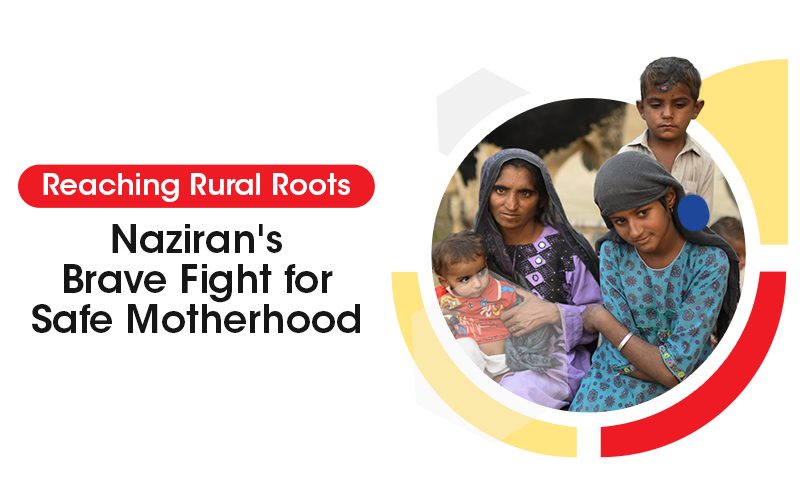Sitting at a local shrine near her house, Naziran Mai silently prayed for her unborn child’s safety. Frequenting the shrine since she was a child, she would offer thanks, ask for forgiveness, and acknowledge the blessings in her life. But now, she prostrated and begged out of sheer desperation.
Naziran lived in the small city of Kacha Razi, located in the Rajanpur district of Southern Punjab. The town lacked basic healthcare services, and people often died of treatable diseases. With a lack of education and quality healthcare facilities, locals were forced to seek help from medically unqualified spiritual healers, who relied on outdated techniques and misinformation.
Allah Ditta, her husband, married her when he was 25. Being a labourer with minimal assets, it was of course difficult for him to bear high medical costs. With most medical facilities operating in large cities, people living in remote rural areas could not afford the travel costs and the inevitable medical charges.
The couple welcomed their first child, a daughter, within their first year of marriage. A local midwife attended the birth, but there were several complications towards the end of her pregnancy. Unfortunately, both mother and daughter suffered severe malnutrition.
Despite the difficulty in going through the first pregnancy, Naziran felt her family’s mounting pressure to have a son. As such, she conceived again after a few months. With such little time between pregnancies and recovery time, she developed severe complications again. Already malnourished, the lack of antenatal care became life-threatening.
As a result, her baby tragically passed away. Naziran lost immense amounts of blood during the delivery process, and then developed an infection from the use of unclean household equipment. However, even after this traumatic experience, her resolve never faltered. She was determined to prevent another tragedy from occurring.
When Naziran became pregnant for the third time, her household was filled with apprehension and unease. But she immediately started her search and consulted with her local neighbourhood. Soon, she discovered the Indus Hospital & Health Network’s Al-Ghazi Trust Campus in Bhong.
The hospital had just started birthing services, and Naziran registered herself there immediately. She felt a wave of comfort wash over her, as she finally had the support she needed. During the pregnancy, she had regular antenatal check-ups and got immunised against tetanus for the first time.
On the day of her child’s birth, she was attended by trained and highly skilled midwives at the facility. All of Naziran’s efforts were rewarded when she gave birth to a healthy baby boy. The baby was vaccinated at birth and sent home with a care package to keep him clean and warm for the first few months.
Her family was overwhelmed with joy, and the couple could finally celebrate a healthy outcome. Naziran expressed her gratitude to the staff for all their help in saving her family. Once she fully recovered, she and her entire family made the journey to her local shrine and offered her sincerest thanks. Tragedy almost tore the family apart, but the joy of having her son gave her the strength she needed to move forward.
The Primary Care Programme (PCP) at Indus Hospital & Health Network is focused on delivering essential medical services to thousands who would otherwise go without care. Through prevention, early detection, and timely intervention, it offers a wide range of services including maternal and child health, chronic disease management, and health education. With 81 primary care sites, IHHN strives to bring healthcare to the corners of Pakistan, reducing the burden of suffering on those most vulnerable.



